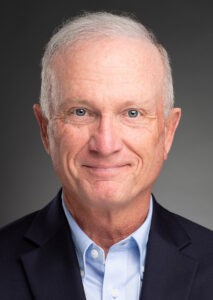
David Ramsey
The House select committee investigating the Jan. 6, 2021, attack on the U.S. Capitol and, more importantly, on our democracy, has provided a revealing and damning glimpse into former president Donald Trump’s role in that horrible event. What might we learn from these hearings?
First, our democracy is more fragile than we thought.
In 1831, the young French aristocrat and attorney Alexis de Tocqueville traveled to the United States, ostensibly to study American prisons, but more importantly, democracy. In an English translation of his seminal book, Democracy in America, he called democracy America’s “grand experiment.”
That experiment almost became a colossal failure Jan. 6, 2021. On that day, our democracy almost toppled under the weight of one of the biggest lies ever perpetuated in our country’s history — the presidential election was “rigged,” and Trump actually won. The hearings have shown how Trump continued to promote the “Big Lie” in the face of, and in spite of, no credible evidence to support his lie.
Second, humans have an almost innate proclivity to believe.
Our need to believe is as pervasive as it is powerful. Under the right circumstances, we’re willing to believe anything and trust anyone about anything, such as conspiracy theories and the president.
Third, our minds seem programmed for stories.
When there aren’t any, we make them up, such as Trump’s lie and the creation myth in the Bible. We also hate ambiguity. When we don’t understand something, we want an explanation.
In 21 Lessons for the 21st Century, Yuval Noah Harari observes, “We are the only mammals that can cooperate with numerous strangers because only we can invent fictional stories, spread them around and convince millions of others to believe in them.”
Enter the con man. In The Confidence Game, Maria Konnikova notes, “He (the con) is only too happy to comply, and the well-written narrative is his absolute force.” The narrative of Trump’s Big Lie wasn’t new. We saw it in 2016, when he faced Hillary Clinton in the presidential election. Well before Election Day, he said, essentially, “If I win, the election will have been fair; if I lose, the election was rigged.” In other words, heads I win; tails you lose.
Wisdom isn’t about unflinchingly clinging to cherished beliefs or rituals or dogmas. It’s knowing when it’s time to abandon them in the face of evidence and facts.
Konnikova explains cons thrive in a time of transition, because transition breeds uncertainty. A con artist likes nothing better than exploiting the sense of unease we feel when we think the world as we know it is about to change. Trump couldn’t have picked a better time to unload his con than the heretofore “smooth” transition of power in the presidency.
If transitions are the con man’s battlefield, repetition is his weapon of choice.
“Repetition is important in the perpetuation of a lie, because the Big Lie works through indoctrination,” Ramani Durvasula, an expert on narcissistic personality disorder and narcissistic abuse, recently told Salon. “The Big Lie then becomes its own evidence base — if it is repeated enough, people believe it, and the very repetition almost tautologically becomes the support for the lie.”
As George Costanza told Jerry Seinfeld: “It’s not a lie if you believe it.”
Fourth, believing a lie can also be a litmus test of one’s fidelity to a group.
Harari notes: “If you want to gauge group loyalty, requiring people to believe in an absurdity is a far better test than asking them to believe in a truth. If all your neighbors believe the same outrageous tale, you can count on them to stand together in times of crisis.”
Fitting in a group isn’t just conforming to consensus beliefs. It means rejecting any evidence that threatens its existence. Psychologists refer to this as motivated reasoning, which also goes by other names — denial, wishful thinking, confirmation bias, rationalization and tribalism. It enables us to avoid cognitive dissonance when faced with contradictory information. Rather than re-examining a contradiction, it’s much easier to dismiss it.
If motivated reasoning is a psychological phenomenon, its philosophical corollary is epistemic stubbornness. When someone refuses to give up a belief in the presence of available evidence, that person is epistemically stubborn.
While epistemic stubbornness can help explain Jan. 6, it also can be applied to religion. Given its extraordinary claims, one might expect religion to be circumspect and humble, not smug and arrogant. But it’s the other way around. Science is intellectually curious and humble, favoring doubt over certainty and curiosity over closure. Religion, though, often is like a peacock proudly displaying her plume of epistemic stubbornness with no hint of circumspection or uncertainty.
Richard Dawkins told the story of a respected elder statesman in the zoology department at Oxford when he was an undergraduate. For years, the scholar had passionately believed, and taught, the Golgi Apparatus — a microscopic feature of the interior of cells — was not real. Every Monday afternoon, the whole department customarily listened to a research talk by a visiting lecturer. One Monday, the visitor was an American cell biologist who presented convincing evidence the Golgi Apparatus was real. At the end of the lecture, the old man strode to the front of the hall, shook the American by the hand and said, with passion: “My dear fellow, I wish to thank you. I have been wrong these 15 years.”
By contrast, it took the Catholic Church more than 350 years to apologize to Galileo for suggesting the earth moves around the sun. And it took the Southern Baptist Convention 150 years to apologize for its support of slavery and segregation. I wonder what other issues the church is wrong about and how long it will take to ask for forgiveness. Homosexuality? Same-sex marriage? The role of women in ministry?
When responding to a claim no one was wiser than he, Socrates replied: “Perhaps I am wiser than (some other man). It is likely that neither of us knows anything worthwhile, but he thinks he knows something when he does not; whereas, when I do not know, neither do I think I know; so, I’m likely to be wiser than (others) to this small extent, that I do not think I know what I do not know.”
What can we learn from Jan. 6? Our democracy is fragile. Humans have an innate desire to believe almost anything, including lies. And Socrates was right. Wisdom isn’t about unflinchingly clinging to cherished beliefs or rituals or dogmas. It’s knowing when it’s time to abandon them in the face of evidence and facts.
What can we learn from Jan. 6? Be like Socrates.
David Ramsey is an author, columnist and former Baptist minister. He holds degrees from Wake Forest University and Duke University, and he was a fellow in religion and leadership development at Princeton Theological Seminary. His website is dbramsey.com. His posts on LinkedIn have been seen by over a quarter-million subscribers.
Related articles:
BJC offers free downloadable report explaining January 6 in light of Christian nationalism
For me, January 6 began as a day of prayer and ended as a day of disbelief


